- Upon arrival at Kigali International Airport, you will be met by our representative outside the customs and immigration hall who will introduce you to your driver-guide.
- Receive a brief about the tour and then transfer to our Kigali city for check in.
- Transit Time: +/- 15 minutes’ drive
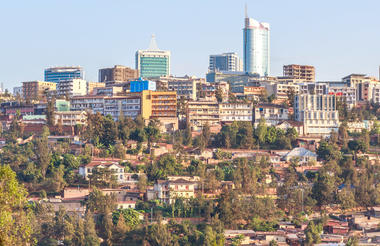
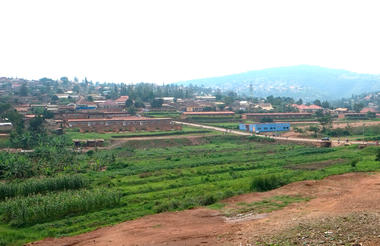
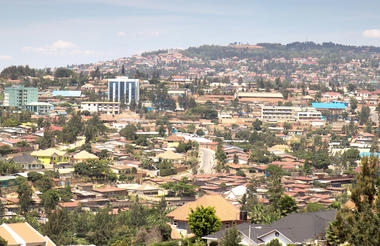
- This morning after breakfast, you will take a scenic drive to Nyungwe Forest National Park with a stopover at Nyanza King’s Palace and Butare Museum.
- You will arrive later in the afternoon and check-in into your lodge on the edge of Nyungwe Forest.
- Transit Time: +/- 6 hours’ drive



Nyungwe Forest National Park
- Nyungwe Forest is one of the largest, most primal and bio-diverse forests along the Albertine Rift.
- Nyungwe Forest is a home to rich floral diversity and is host to a number of Albertine Rift endemics, as well as 13 primate species, including Chimpanzees, L’Hoest’s Monkey, and Golden Monkeys, as well as Black and White Colobus.
- The forest also supports a growing number of mammals and a 310 species of birds – including 27 Albertine Rift endemics.
- This is a highlight of your visit to the Nyungwe Forest with chimpanzee tracking and an afternoon Canopy walk
Chimpanzee trekking
- The day begins with an early breakfast and then transfer to the park headquarters for briefing on the dos and don’ts of chimpanzee trekking.
- You will then head to the forest as the guide takes you through other things of interest along the trail. A rustle of leaves, and then, through the branches if you lucky, you’ll spot a chimpanzee gazing down from the fig trees. Or perhaps you will see a troop of tree-dwelling chimps catapulting off through the canopy.
- Every trek is different, and the jungle’s charismatic chimpanzees are full of surprises.
Canopy Walk
- Later in the afternoon, you will go for a canopy walk in Nyungwe Forest.
- The canopy walk here is a must do. It is one of the first three to be established in Africa and one of its kind in East Africa. It comprises of three sections—all of which are suspended over 50meters from the floor of the forest, offering the best aerial view of the forest.
- All of these sections are safe to explore as they are built of elastic but strong materials.



- Have a relaxed morning and thereafter, drive to Volcanoes National Park that protects the steep slopes of this magnificent mountain range and is the home of the rare Mountain Gorilla.
- Transit Time: +/- 4 hours’ drive
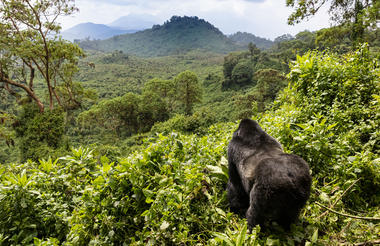
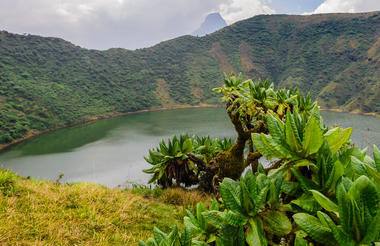
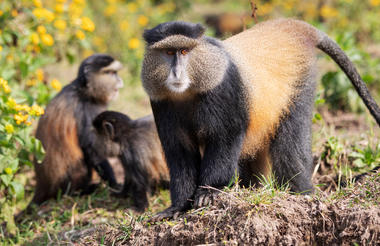
Volcanoes National Park
- Volcanoes National Park is an earthly paradise with enormous trees, bamboo and tropical forest, as well as marshlands.
- Found within three hour’s drive from Kigali International airport. It is the most popular sanctuary for Mountain Gorilla tracking of the four mountain gorilla parks in the Greater Virunga Region. Why? The gorillas in it are offspring’s of a generation that Dian Fossey personally mothered.
- In case that name doesn’t ring a bell, Fossey is an American zoologist. She spearheaded a spirited conservation campaign of the Rwanda’s Gorillas starting 1960's to 1985
- When she was murdered by poachers, she was laid to rest next to the grave of her favourite Gorilla called Digit at Karisoke Gorilla Research Centre, an institution she founded.
- Today our day begins with an early – 06:30 am – drive to the Volcanoes National Park offices for Gorilla Trekking.
- After a briefing by rangers at the office, we begin our walk at 8:00 am. Volcanoes National Park protects the steep slopes of this magnificent mountain range and is the home of the rare Mountain Gorillas. It is a rich mosaic of montane ecosystems, embracing evergreen and bamboo forests, open grassland, swamp, and heath, but of course, the high point of our day will be spending an hour with gorillas as they go about their daily life, feeding, playing, resting, and raising their young.
- They are remarkably peaceful animals despite their size and appearance.
Ibyiwacu cultural village visit.
- After our gorilla trekking, we’ll return to the lodge bathe and freshen up, enjoy some food, and either relax or visit the Ibyiwacu cultural village.
- Ibyiwacu, the “ex-poachers’ village,” is all about changing traditional perceptions of what constitutes tourism by turning fate into fame. By sharing aspects of their rural cultures and livelihoods, they are attracting and educating tourists and creating income-generating activities for rural poor people.
- Living on bushmeat for generations, these people fed themselves by poaching. The village now provides tourist experiences beyond wildlife viewing, showing you the people and culture and how they live.
- The village also offers a chance for visitors to enjoy eight different local dances, listen to Gorilla songs, learn about local food preparations, visit the local healer, see the king’s palace, and listen to all the old stories about Rwanda.
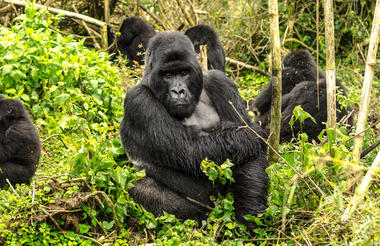
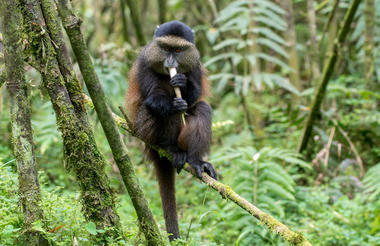
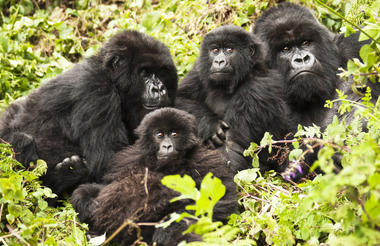
- Start the day with an early morning breakfast and then set off to Akagera National Park.
- You will be dropped at the Northern gate where you will meet the lodge shuttle that will transfer you to the lodge.
- Transit Time: +/- 5 hours’ drive
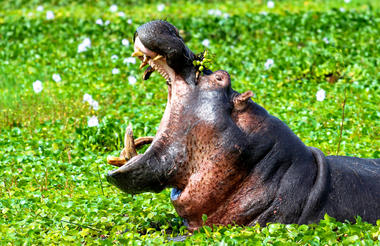
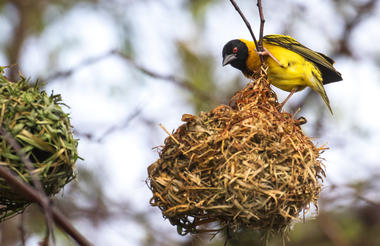
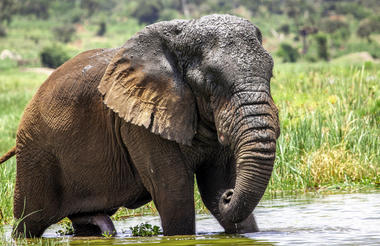
Akagera National Park.
- Hugging Rwanda’s Eastern border with Tanzania, Akagera National Park covers about 1,120km
- It is one of Africa’s oldest national parks, first gazetted in 1934.
- The north of Akagera is mostly fairly low-lying grasslands and savannah plains similar in feel of traditional safari areas of East Africa.
- To the west are rolling hills and valleys more typical of Rwandan countryside
- While to the East, the Akagera river feeds into a series of lakes, marshes and papyrus swamps that constitute central and eastern Africa’s largest protected wetlands.
- Have a morning game drive in the park.
- The game in Akagera includes most of the usual plains species. Impala and topi seem to be dominant, eland, oribi, Masai giraffe, waterbucks, bushbucks and roan antelopes are also present. Burchell's zebras are commonly seen whilst game viewing.
- Buffaloes are more prevalent on the North as are elephants.
- Later in the afternoon, enjoy a boat cruise on Lake Ihema.
- Sail along the water edge which is covered with several trees, drift past numerous giant hippos and see several crocodiles some in the shallows of the water and other basking on the shore.



- After an early morning breakfast, you will drive back to Kigali.
- Time allowing, go for a brief city tour of Kigali which is the capital and largest city of Rwanda and has been the economic, cultural, and transport hub of Rwanda since it became capital at independence in 1962.
- You will also visit the genocide museum OR transfer to Kigali International Airport for your flight back home.
- Transit Time: +/- 3 hours’ drive




